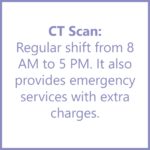


The light of one’s eyes means the world to us. At Regency Medical Center we make sure that your eyes are well protected. With a comprehensive range of services we make sure that you do not want for anything.
There are a number of different checkups and procedures that are essential to make sure your eyes are healthy, we provide them all.
cataracts and Phaco Surgeries

This modern day surgical solution to cataracts does not require an overnight stay in the hospital.It is quick, painless and highly effective.
In this process, the eye’s internal lens is emulsified using an ultrasonic handpiece and aspirated. This procedure is usually performed under local anaesthesia.
The phaco probe used for this procedure is an ultrasonic hand piece with a titanium or steel needle.This needle vibrates at ultrasonic frequency to sculpt or emulsify the cataract while a pump aspirates through the tip.
Glaucoma Treatment

Glaucoma is a commonly occurring disease of the eye which causes intraocular pressure that damages the optic nerve transmitting information from the eye to the brain.
Eye drops are usually the first option as a solution for this disease. The second, and more direct solution, is surgery which works very well in reducing intraocular pressure.
Prostagladins, the eye drops, are required to be used only once a day and have high user compliance. They relax muscles in the eye’s interior structure and allow for better outflow of fluids which helps in reducing buildup of pressure.
Beta blockers were also used at one point for treatment of this ailment.
Optometry Services

Optometry largely involves examining the eyes to identify the refractive error in the eyes and prescribing corrections through spectacles.
There is a comprehensive eye exam which is conducted to identify the refractive flaw in the eye. Depending on the same prescription glasses or lenses are suggested to the patient.
This field also includes identifying of various eye related ailments as well.
Optometry also helps identify a variety of retinal conditions and visual abnormalities.
Orthoptic Checkups

Orthoptics works primarily with the diagnosis and correction of binocular vision disorders like amblyopia, version refractive errors and other extraocular muscle balance as well as accommodation imbalances.
These checkups are essentially about checking the straight sight of an individual as well as concerns regarding refraction and muscular eye control.
These checkups can also identify a range of other problems including glaucoma, cataract screening and diabetic retinopathy.
A-Scan Ultrasound Biometry

Amplitude Scan, or A-Scan, is a routine diagnostic tool in optometry.
This scan is usually used to measure the length of the eye, which is one of the main determinants of eye disorders. This also helps a great deal in measuring the intra-ocular lens power.
When a cataract is removed it is replaced by an artificial lens. By measuring the length of the eye and the power of the cornea a simple formula can be used to calculate the power of the inter-ocular lens.
This scan is also used to calculate the characteristics of the masses in the eye to determine their type.
Oculoplastic and Squint Surgeries

This line of ophthalmology works towards correcting the deformities related to the eye.
The eyelids and the structures around it are crucial for vision.
Injuries, congenital defects, aging changes or even tumours can cause problems for the individual. Changes in the eye’s appearance can decrease one’s ability to function in social situations.
Oculoplastic surgeries correct a number of eye related deformities. Things like droopy eyelids, squints, tear duct obstructions, orbital fracture repairs etc. are carried out by Oculoplastic surgery.
Paediatric Eye Surgeries

This field is entirely related to the identification and cure of eye diseases, visual development and vision care in children.
Paediatric eye surgeries have become a specialised field within themselves.
These surgeries are highly delicate and require a trained hand.
It is important that some eye problems are corrected in childhood itself to provide the child the best possible chance.
At Regency, we pride ourselves in the quality of paediatric eye surgery we have established.

- Minor Insertion Phaco Surgery with foldable IOL implantation
- Surgical treatment of Squint and occeloplasty surgeries
- Glaucoma Surgeries
- Diagnosis of Retinal diseases
- Management of Paediatric Eye Diseases
- Advance optometry and cataract lens services
In most cases procedures like PRK and LASIK do not cause pain. There are numbing eye drops available to make sure any irritation, pain or discomfort is alleviated during the surgery.
Surgeons may also provide medication to help the patient relax before the procedure. LASIK only requires anaesthetic drops. While there is no pain patients may feel some pressure on their eyes. There may
be some itching after the procedure and doctors may prescribe eye drops to alleviate this.
One of the most effective means of correcting one’s eyesight, laser eye surgery has been around for decades.
This surgery basically involves reshaping the patient’s cornea so that the sunlight enters the eye and hits the retina in a different fashion.
The success rate of this surgery is 95% and will improve short sightedness, long sightedness and/or astigmatism.
There are a number of types of laser surgeries available. LASIK, or Laser-Assisted in Situ Keratomileusis, is the most popular. Other such surgeries are Intra-LASIK, Wavefront Lasik, Epi-LASIK, LASEK and PRK.
Each of these procedures has a specific purpose and the best procedure for your condition will be suggested by your treating physician.
Laser eye surgery has a high safety record. Reports of sight-threatening conditions because of laser surgery are very rare.
But just like any other surgery, there is always a percentage, albeit small, of
risk. Choosing an experienced and skilled surgeon will cut down on these risks to a great extent.
There are conditions which can make you unsuitable for laser eye surgery. Conditions like thin or irregularly shaped corneas, heightened refractive error, existing unstable vision, dry eyes, age limitations, pregnancy, are just some of these factors.
There can be some side-effects of laser eye surgery which include, temporary visual disturbances and discomfort, flap complications, dry eyes, remarkable undercorrection, overcorrection or regression or eye infection.
These risks are, however, rare and can be easily avoided by choosing only the best possible surgeons.
It is possible, however, it may not be necessary. Modern cataract surgery provides for your surgeon to correct your near sightedness, far sightedness or astigmatism through a procedure called refractive cataract surgery.
Sometimes minor refractive errors can persist after cataract surgery in
such cases laser surgery can be performed a few weeks or months after the cataract surgery.
There is a small percentage of possibility that one may develop double vision after cataract surgery.
There are a number of reasons why this may be the case. A good surgeon takes the complete medical history of the patient to rule out all major possibilities for diplopia.
There is, however, the possibility that some patients may develop diplopia even without exhibiting the major factors leading up to it.
Just like any other surgery, cataract surgery too presents with some possible side effects. Pain, infection and swelling are some of the possible side effects of cataract surgery.
There are, however, very few people who experience these side effects. The key is to have a great surgeon perform the surgery for you to avoid these painful side effects.
Most of these side effects can be managed by medication or a follow up procedure.
Yes, if left untreated cataracts can cause progressive loss of vision eventually leading to blindness.
The vision lost due to cataracts can be successfully restored with the help of cataract surgery.
Yes, typically one is awake during this surgery. This helps eliminate the risks associated with general anaesthesia and enables your surgeon to communicate with you.
If the idea of being awake during he surgery concerns you, the surgeon will provide you oral medication to keep you relaxed.
A short time after the procedure one can leave the hospital and go home.
However, driving is not allowed for someone who has just had cataract surgery and they would need someone to drive them home.
If one eye turns or crosses that eye of the child may not be seeing as well as the other eye.
If the child does not show interest in faces or age-appropriate toys they could be facing some issues with their sight.
Tilting of the head while watching things or even squinting can be symptoms of sight issues. It is important to note that babies and toddlers compensate for sight issues rather than complain about it.







